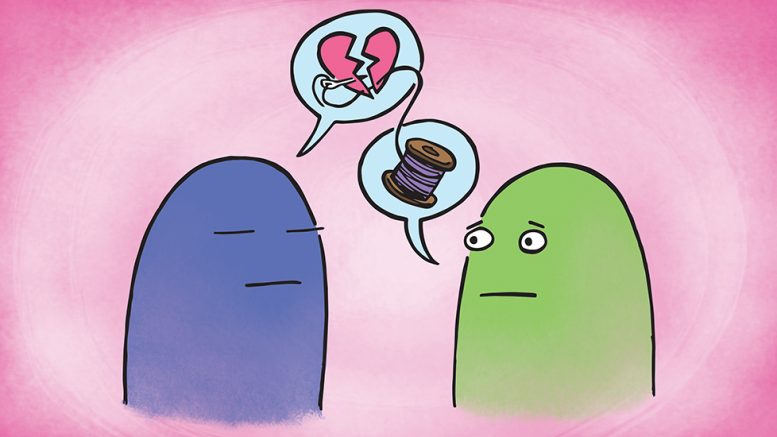About a year ago, three different friends of mine attempted suicide and were hospitalized in the span of a month. I felt overwhelmed and helpless, thinking it was at least partially my responsibility to help three people I loved – all of whom were fairly angry to wake up after attempting to die to find that they were still alive – feel like life was worth living. While this feeling of obligation seems to be a common response to a loved one’s attempted or completed suicide, it does not follow that you are personally responsible.
If someone’s pain is so great that they do not want to continue living, it does not matter how good a friend, partner, or family member you are. Regardless, this reassurance often cannot compare to the power of our feelings, and our need to find justifications and sources for them. When my friends and family are sick, I find it difficult to do anything besides lie in bed worrying, eating occasionally, and visiting them in the hospital.
After a couple weeks, the stress, discomfort, and dullness of lying in bed all day feeling exhausted and heartbroken prompted me to do something I had been putting off for years: go to counselling. I have been going on and off for about a year, and it is one of the best things I have ever done for myself and the people around me. I have become so good at managing my anxiety that this past summer I went to music festivals and actually had fun – even after arriving at one thinking I was on the brink of a full-blown panic attack – something I was not able to do previously. I’m sure other severe anxiety sufferers know that this is a big deal.
There are a lot of issues I have worked through in counseling, but the core of what I have learned is simple: the importance of non-judgmentally accepting and communicating personal feelings. Of course, this is simple only in concept. In practice, our brains are a maze of guilt traps and pathways created by past interactions and trauma. Still, even simply recognizing that patterns exist is the first step in figuring them out and addressing them.
This hasn’t just been good for me, it has been good for the people around me. Before, I would feel consistently depressed and angry and I didn’t understand why. I needed a reason for my feelings, and would often end up blaming the people I cared for the most. I would lash out to those around me, scaring them and hurting their feelings.
Now, I can understand that my body and my brain often enter fight or flight reactions based on past situations of trauma and that my emotional reaction doesn’t always make sense given the current situation. I can take a step back, figure out the source of my feelings, and discuss conflict from a place of compassion for myself and my loved ones. While I sometimes regress – healing isn’t linear and every situation is unique – overall, I have much stronger relationships in every area of my life, and I am able to be more empathetic and supportive to the people I love.
As I become better at recognizing and managing my emotions, I notice more and more those around me who are not adept at this kind of regulation. I see myself in people who slam the door, yell at and frighten their friends, all waiting for someone to ask what’s wrong. They scare me, like I used to scare people, like I still sometimes do scare people. They remind me of other people in my life who yelled and slammed things, who had no idea what or why they were feeling, and needed someone to blame and someone to fix it at the same time.
Being unable to manage and discuss your feelings hurts the people around you. But it also hurts you. It severely limits the depth, quality, and durability of your social connections, your ability to navigate conflict without destroying your relationships, and your ability to understand yourself and find non-destructive ways to feel better that work for you. In short, it limits the quality of your life.
It’s okay to be angry. It’s okay to be sad. It’s even okay to be angry and sad when you have no right to be angry and sad. But it’s not okay to yell, hit, intimidate, or try to manipulate and control people because you don’t understand, want to accept, or know how to process your feelings. You are entitled to your feelings. You are not entitled to the use of anyone else’s body or soul as your bad-feelings-garbage-dump. Especially if that person loves you.
So, for your sake, for the sake of your friends, for the sake of your family, your coworkers, and your life – if you do one thing in 2018, make it be going to therapy.
For a place to start, visit Klinic’s free Drop-In Counselling site at http://klinic.mb.ca/in-person-counselling/klinic-drop-in-counselling/, or call (204) 786-8686.

